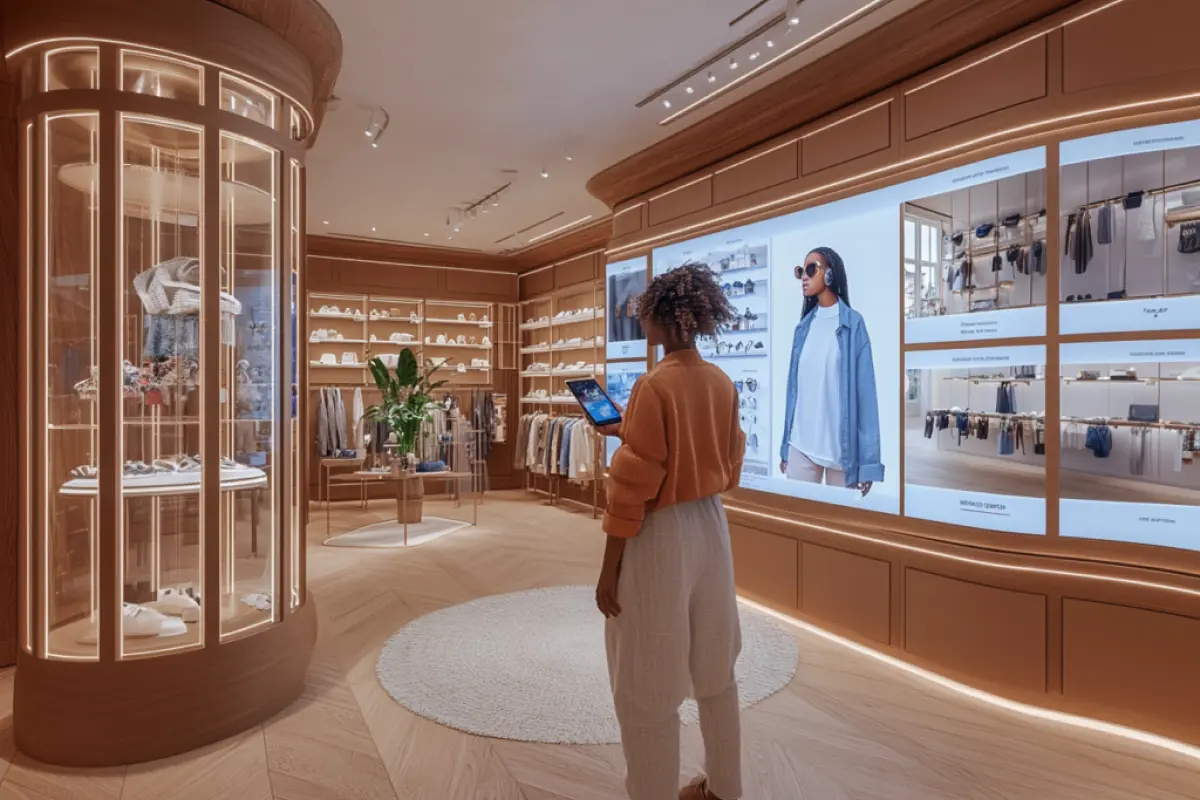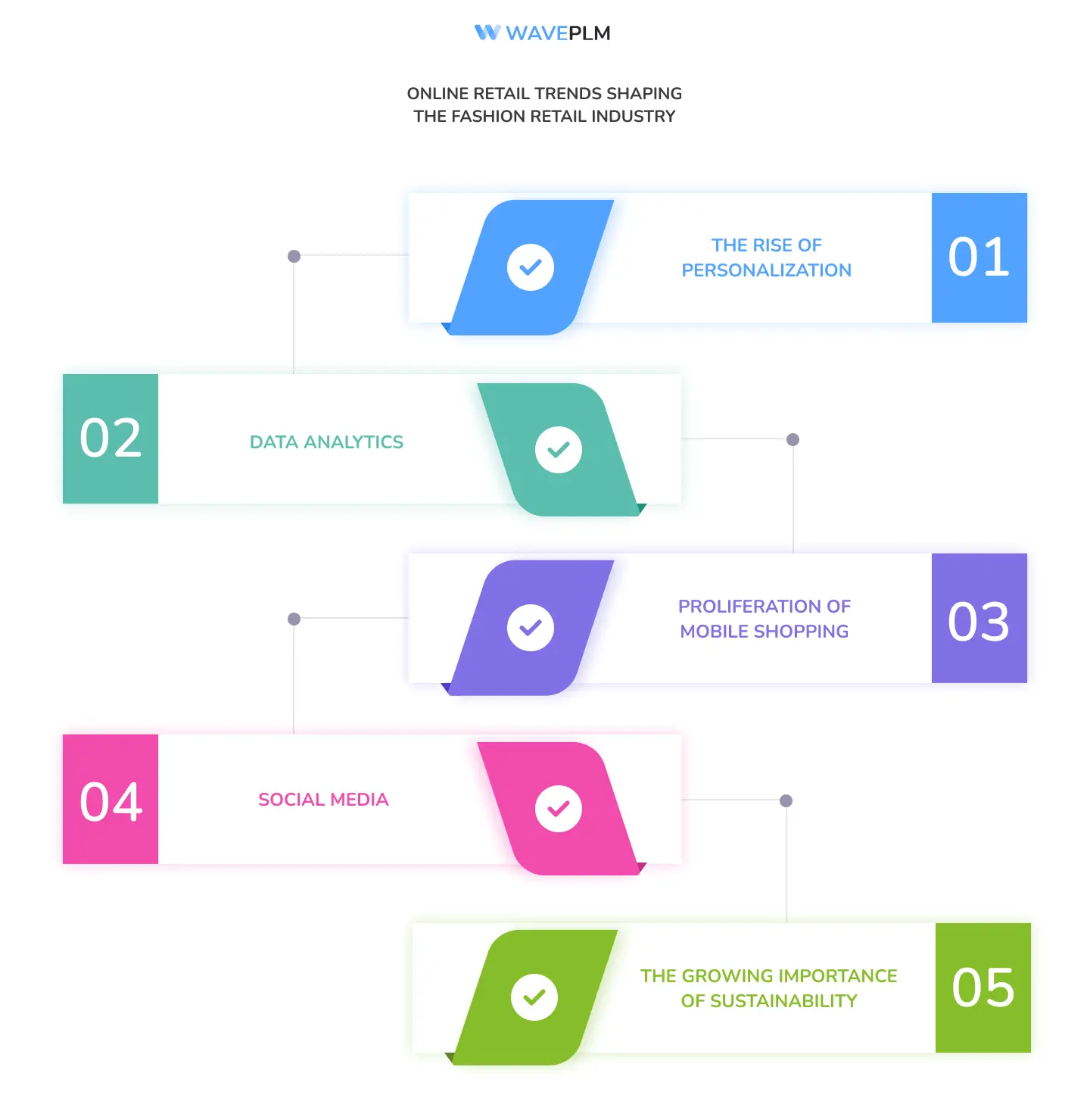E-commerce has fundamentally altered the retail landscape, transforming the way consumers shop and forcing traditional retailers to adapt to a new era. This shift is particularly evident in the fashion retail industry, where fashion accessories retailers have experienced both the challenges and opportunities brought about by the rapid growth of online shopping.

In this article, we will explore how e-commerce growth, online retail trends, and digital transformation are shaping the future of fashion accessories retailers, with a special focus on the role of Product Lifecycle Management (PLM) software.
The Evolution of E-commerce and Its Influence on Fashion Accessories Retailers
The last decade has seen a dramatic rise in e-commerce, fundamentally changing how consumers purchase fashion accessories. The convenience of shopping from home, coupled with a broader range of products and competitive pricing, has made online shopping the preferred method for many customers. This shift from physical stores to digital platforms for fashion accessories retailers has necessitated a complete overhaul of business strategies to remain competitive.
One of the most significant impacts of e-commerce growth is the ability to reach a global customer base. Unlike traditional brick-and-mortar stores that are limited to local markets, online retailers can sell their products to consumers worldwide. This globalization presents immense opportunities for fashion accessories retailers to increase their sales and expand their brand presence. However, it also introduces intense competition, as retailers must now compete with both local stores and global giants.
Moreover, e-commerce platforms have democratized the fashion retail industry by allowing smaller, niche brands to compete alongside established players.
Fashion accessories retailers can now leverage online marketplaces, such as Amazon and Etsy, to reach new customers without the need for a physical storefront. This shift has opened the door for innovation, as retailers can experiment with new designs and product lines without the overhead costs associated with traditional retail.
Online Retail Trends Shaping the Fashion Retail Industry
Several key online retail trends are currently shaping the fashion retail industry, particularly for fashion accessories retailers.
- One of the most significant trends is the rise of personalization. In today’s digital age, consumers expect personalized shopping experiences that cater to their individual tastes and preferences. This demand for customization extends to all aspects of the shopping experience, from personalized product recommendations to targeted advertising.
- Fashion accessories retailers are increasingly using data analytics to better understand their customers and deliver personalized experiences. By analyzing customer behavior, preferences, and purchase history, retailers can tailor their offerings to meet the specific needs of their audience. This special way of doing things makes customers happy and keeps them coming back to buy more.
- Another major trend is the proliferation of mobile shopping. With the widespread adoption of smartphones, more consumers are shopping on mobile devices than ever before. This change is important for stores that sell fashion accessories.
They need to make sure their websites work well on mobile devices. A mobile-friendly website that offers quick and easy shopping is essential for attracting busy shoppers.
- Social media also plays a critical role in the modern fashion retail landscape. Fashion accessory stores use social media platforms such as Instagram, Pinterest, and TikTok. They use these platforms to display their products, interact with customers, and drive traffic to their online stores.
Social media influencers and brand ambassadors help retailers. They reach more people and build a strong brand identity. They do this by connecting with a larger audience.
- In addition to these trends, the growing importance of sustainability in fashion cannot be overlooked. Consumers now care more about how their purchases affect the environment and want retailers to be more sustainable.
Fashion accessories retailers are responding by incorporating eco-friendly materials, ethical production methods, and transparent supply chains into their business models. E-commerce platforms, with their ability to provide detailed product information, are well-suited to meet this demand for transparency and sustainability.

Digital Transformation and the Crucial Role of PLM Software
At the heart of the e-commerce revolution is digital transformation—a comprehensive reimagining of business processes, models, and customer experiences through digital technologies. For fashion accessories retailers, digital transformation is not just an option; it is a necessity for staying competitive in the fast-paced world of online retail.
One of the most important tools in a retailer’s digital transformation toolkit is Product Lifecycle Management (PLM) software. PLM software helps retailers manage the entire lifecycle of a product, from initial design and development to production, marketing, and sales. By providing a centralized platform for collaboration, PLM systems streamline the product development process, reduces time to market, and ensures that all stakeholders are aligned.
In the fashion retail industry, where trends change rapidly and time-to-market is critical, PLM software is invaluable. It allows fashion accessories retailers to respond quickly to emerging trends, make informed decisions based on real-time data, and maintain a competitive edge in a crowded market. Moreover, PLM systems support sustainability efforts by enabling retailers to track and optimize their use of materials and resources throughout the product lifecycle.
Digital transformation also extends to other areas of the business, such as supply chain management, customer relationship management (CRM), and marketing automation. By leveraging digital tools and technologies, fashion accessories retailers can optimize their operations, improve customer engagement, and drive sales growth.
The Future of Fashion Accessories Retailers in the E-commerce Era
As e-commerce continues to evolve, fashion accessories retailers must remain agile and adaptable to thrive in this dynamic environment. The integration of digital tools, such as PLM software, is essential for staying competitive and meeting the ever-changing demands of consumers. Additionally, retailers must stay attuned to emerging online retail trends, such as personalization, mobile shopping, and sustainability, to remain relevant in the eyes of their customers.
In conclusion, the impact of e-commerce on fashion accessories retailers is profound, driving significant changes in how these businesses operate and compete. By embracing digital transformation and staying ahead of industry trends, fashion accessories retailers can not only survive but thrive in the increasingly digital world of fashion retail. The future of fashion accessories retail lies in the seamless integration of technology, creativity, and customer-centric strategies, ensuring that retailers are well-positioned to meet the challenges and opportunities of the e-commerce era.





Leave a Reply